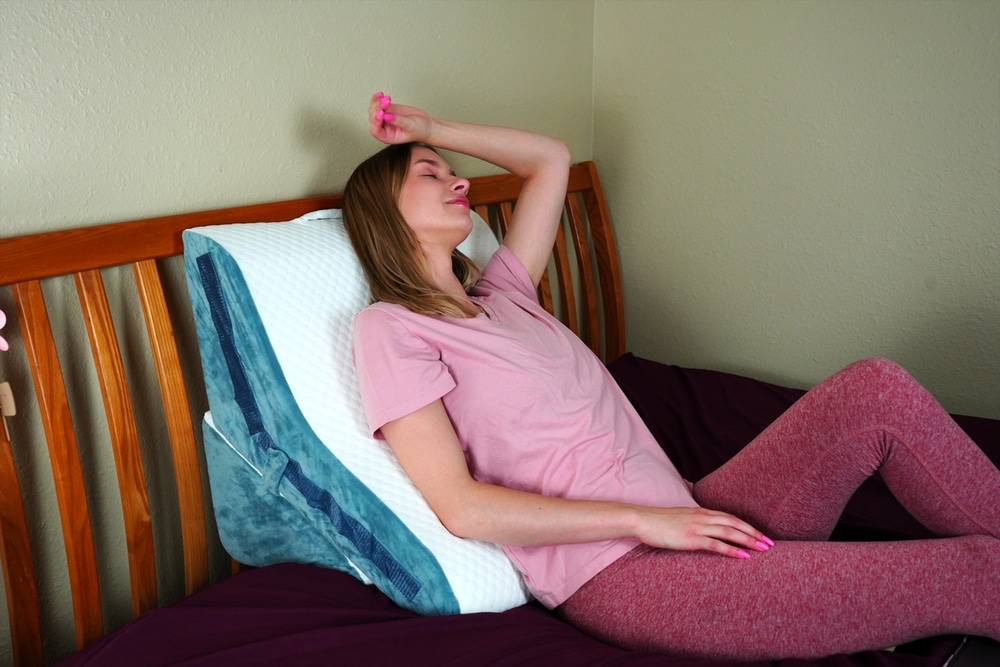After a rhinoplasty, or nose job, taking care of your nose is essential for a smooth recovery. Strictly adhere to your aftercare instructions to protect your nose and help promote the best results.
Dr. Louis M. DeJoseph, a specialist in facial plastic surgery, notes that a thorough aftercare plan is important. Dr. DeJoseph suggests that patients need to pay close attention to how they care for their nose after surgery. This includes going to all scheduled doctor appointments and being very gentle with the nose as it heals.

How to Protect Your Nose After Rhinoplasty
- Avoid strenuous activities and exercise for at least 6 weeks to reduce the risk of injury to your newly shaped nose.
- Use a high-SPF sunscreen to keep your nose protected from the sun, as your skin will be more sensitive post-surgery.
- Avoid rubbing or bumping your nose and use extreme caution when changing clothes or washing your face.
- Sleep with your head elevated higher than your chest to minimize swelling and aid in the healing process.
- Follow your surgeon’s specific post-op care instructions closely for the best recovery and results from your rhinoplasty.
1. Follow Your Surgeon’s Aftercare Instructions Religiously
Medication Management
Following your surgeon’s prescribed pain management protocols is key after rhinoplasty surgery. These protocols are designed to help control discomfort and minimize inflammation, which can speed up rhinoplasty recovery. They are not only about easing pain but also about ensuring a smoother recovery from rhinoplasty surgery by avoiding possible complications.
Activity Restrictions and Rest
Attention to recommended activity restrictions and getting enough rest are also critical. Avoiding strenuous activity is important because it helps protect the surgery area and supports proper rhinoplasty healing. Rest is essential for a quick and trouble-free recovery, so prioritizing downtime is a must for anyone recovering from rhinoplasty surgery.
2. Keep Your Head Elevated to Reduce Swelling

Best Sleeping Positions
To cut down on swelling, it’s key to sleep with your head raised higher than your heart. This stance lessens blood flow to the nasal tissues, aiding in faster healing after rhinoplasty surgery.
Pillows and Props to Use
Piling up several pillows can help keep your head in an elevated position all night. Alternatively, wedge pillows, made especially for recovery after surgery, offer both comfort and support in keeping your head raised.
3. Apply Cold Compresses Carefully
Using cold compresses is effective for reducing nasal swelling after surgery. It’s important to cover the cold compress with a soft cloth to avoid putting ice directly on your skin, which could cause harm. Instead of pressing it right on the swollen nose, gently apply it around the area.
For the first 48 hours after surgery, apply cold compresses every 1-2 hours for 15 minutes at a time. This method is part of swelling reduction techniques that aim to manage swelling without harming the recovery of nasal tissues.

Secure Your Safe Procedure Experience with Dr. Louis DeJoseph
Join our satisfied clients who’ve experienced safe, effective treatments.
4. Avoid Strenuous Activities and Exercise

After rhinoplasty, it’s important to take it easy and limit physical activity. This helps your recovery period go smoothly. If you push yourself too hard and do strenuous activities, you might face complications that can slow down your healing.
Start with gentle, low-impact exercises, and talk to your doctor about when to increase your physical activity levels. Usually, you can gradually get back to your usual routine over a few weeks. Pay attention to how your body feels to avoid overdoing it and shift activity levels safely.
5. Be Mindful of Your Nasal Hygiene
Gentle Cleaning Methods
Maintaining nasal hygiene after a rhinoplasty is extremely important. Carefully clean your nasal passages with a saline solution. This gentle cleaning method helps avoid irritation while keeping the area tidy.
Products to Use:
- Saline Sprays: To maintain moisture in your nasal passages, use saline sprays designed for sensitive areas. These sprays help keep the nasal tissues hydrated and promote healing.
- Gentle Nasal Rinses: Use gentle nasal rinses or saline irrigation systems to clear out mucus or debris without causing irritation.
- Moisturizing Gels or Ointments: Apply moisturizing gels or ointments specifically formulated for post-surgical care to keep the nasal skin soft and prevent dryness.
- Humidifiers: Use a humidifier in your living space to maintain adequate humidity levels, which can help keep your nasal passages moist and comfortable.
Products to Avoid:
- Strong Chemicals: Avoid products containing strong chemicals, as they can irritate the delicate skin inside your nose and hinder the healing process.
- Fragrances: Steer clear of products with fragrances or essential oils, which can cause allergic reactions or irritation.
- Decongestant Sprays: Do not use over-the-counter decongestant sprays unless recommended by your surgeon. They can dry out the nasal tissues and prolong recovery.
- Harsh Cleaning Agents: Do not use harsh soaps or cleaning agents on or around your nose. Stick to mild, non-irritating products to clean your face.
6. Protect Your Nose from the Sun

Importance of Sun Protection
The skin on your nose becomes more sensitive after a rhinoplasty procedure. Proper sun protection is key to avoid discoloration and keep the results of your surgery looking great.
Recommended Types of Sunscreen
Mineral-based sunscreens work best for the nose after rhinoplasty. These sunscreens form a shield on your skin, providing broad-spectrum coverage without causing irritation. Choose products with SPF 30 or higher and apply them generously.
7. Eat a Healthy, Balanced Diet to Promote Healing
Nutrients Essential for Recovery
A balanced diet is key to helping your body heal after a rhinoplasty. Focus on nutrients essential for recovery, such as protein, vitamins A and C, and zinc. These play important roles in tissue repair and help your immune system stay strong.
Foods to Avoid
At the same time, certain foods can slow down your healing nose. Try to limit salty snacks and processed foods, as they can lead to more swelling. Cutting down on sugar, caffeine, and alcohol after rhinoplasty could also make the healing process smoother, especially in the days after surgery.
8. Stay Hydrated
The Role of Water in Healing
Staying hydrated is key during the recovery process from a rhinoplasty. Drinking enough water ensures your body heals well by moving nutrients and getting rid of waste efficiently.
Recommended Daily Water Intake
It’s best to drink 8-10 glasses of water daily for a smooth recovery. This water intake helps your body’s healing process, maintaining a consistent daily routine that promotes swift healing in the days after surgery.
9. Attend All Follow-up Appointments with Your Surgeon
Importance of Monitoring Healing Progress
Going to all your follow-up appointments after a rhinoplasty is key. These visits help your surgeon keep an eye on how well you’re healing and the progress of your facial features. They can spot any problems early on. Catching issues early means they can take care of them quickly, stopping bigger problems later.
Adjusting the Care Plan as Needed
During these appointments, you can tweak your care plan if necessary. Based on how your nose is healing, your surgeon might suggest changes or add new steps. This custom approach is great for ensuring smooth recovery and the best results from your rhinoplasty.
Embracing the healing process is key to a successful recovery and achieving natural-looking rhinoplasty results.
For expert guidance throughout your rhinoplasty journey, schedule a consultation with Dr. Louis M. DeJoseph, a triple board-certified surgeon at Premier Image Cosmetic & Laser Surgery in Atlanta, GA.
Dr. DeJoseph is dedicated to helping you recover smoothly and providing all the information you need. His expertise and experience will ensure you receive the best care and achieve natural-looking results.